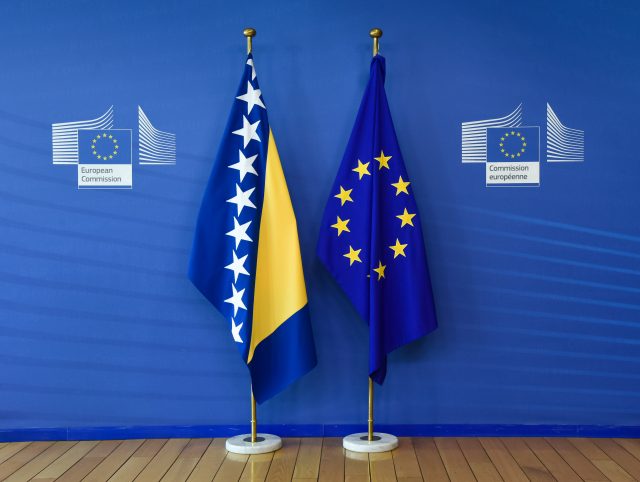

First, an interesting point arises from the analysis of those few areas where limited progress has been made, because they are rather counterintuitive. Corruption has long been – and remains – one of the most pertinent challenges for BiH, with a suffocating effect on all spheres of governance and reform. Despite the grim lack of progress, the report notes that the anti-corruption office of the Sarajevo Canton, the most populous in BiH, has made good progress and processed 372 reports of corruption in 2019. However, a recent corruption scandal in the “Respirators” case that was publicly exposed and resulted in US expert Eric Larson joining the Sarajevo Canton Anti-Corruption Office, or the case involving the high-ranking SDA official Asim Sarajlic, are not mentioned in the report. Overall, the report continues to name corruption as one of the key challenges in the country.
Despite many efforts, not just in the past 18 months, relations between the majority and minority communities remain a hugely sensitive issue in many spheres of life. It is good to read that there has been some progress in recognising the name of the Bosnian language in schools in the Republika Srpska entity. In December 2019, the entity’s Supreme Court recognised the discrimination and violation of the right to education for Bosniak pupils and ordered the Vrbanjci (Kotor Varoš) branch school to introduce subjects from the Bosnian curriculum for them. I conducted research for my PhD in the town back in 2012, and this issue was already present and seriously burdening relationships between local communities, so this decision is an immensely important one, despite not having been implemented just yet, because it is a flagship case with a potential positive snowballing effect. Equally important is the political agreement from June 2020, which allows Mostar to hold local elections this year for the first time since 2008.
More positive developments are noted, such as all levels of government adopting the strategic framework on public administration reform in July this year, contributing to key priority 14 of the key priorities from the Opinion, as well as BiH adopting the revised National War Crimes Strategy in September 2020, contributing to key priority 5. The latter will be a very important step, for BiH and regional stability, if it is effectively implemented in the coming years. Nevertheless, the report concludes that little action has been taken by political actors to address the 14 key priorities of the Commission’s May 2019 Opinion, highlighting the painstakingly slow progress towards the EU accession.
In short, BiH is facing a huge number of challenges for a small country, and the report does well in documenting them. However, prioritising them in proposing the way forward, alongside giving more analytical weight to understanding the background to the positive developments, would make it much more useful for the country and the EU’s engagement. Otherwise, it will fall flat yet again.